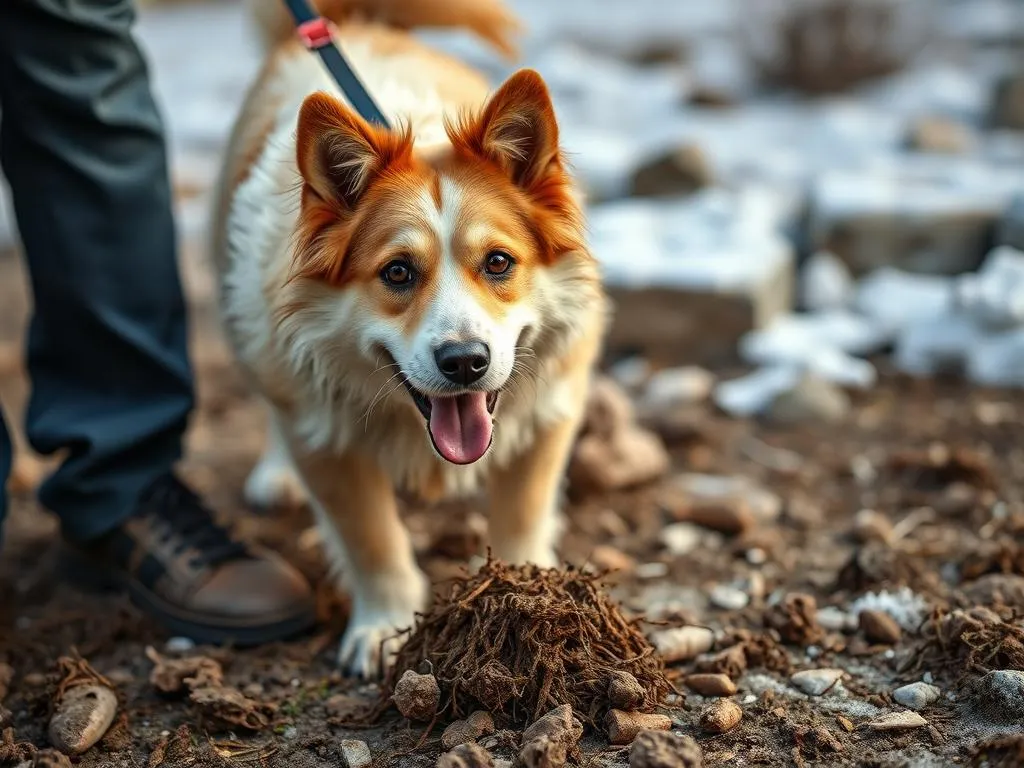
Introduction
As a dog owner, you embrace the joy and companionship that comes with having a furry friend. However, along with the joy of dog ownership comes a set of responsibilities that are crucial for the well-being of your pet, your community, and the environment. One of the most important duties you will encounter is the question: do you have to pick up dog poop? This article delves into the many reasons why cleaning up after your dog is essential, exploring health concerns, environmental impact, community responsibility, and more.
By the end of this article, you will have a comprehensive understanding of why picking up dog poop is not just a chore but a vital aspect of responsible pet ownership.
The Importance of Picking Up Dog Poop
Health Concerns
One of the most pressing reasons to pick up dog poop is related to health concerns. Dog feces can harbor a plethora of harmful bacteria and parasites, including:
- Roundworms
- Giardia
- E. coli
- Salmonella
These pathogens can be transmitted to humans, particularly children, who are more susceptible due to their natural tendencies to explore their environments. By neglecting to clean up after your dog, you increase the risk of disease transmission that could potentially impact your family and others in your community.
Environmental Impact
The environmental ramifications of failing to pick up dog poop are significant. Dog waste contains nutrients that, when washed into waterways, can lead to water contamination and pollution. This runoff can contribute to:
- Algal blooms: Excess nutrients can lead to harmful algal blooms, which deplete oxygen in water bodies and can kill aquatic life.
- Soil degradation: Accumulated waste can alter the pH of the soil, affecting local flora.
- Wildlife risks: Local wildlife can be negatively impacted by the presence of dog waste in their habitats, which can lead to imbalances in the ecosystem.
Taking the initiative to pick up dog poop is a simple yet effective way to protect the environment and ensure the health of local wildlife.
Community Responsibility
Maintaining clean public spaces is a shared responsibility among pet owners. When you pick up dog poop, you contribute to the cleanliness of parks, sidewalks, and neighborhoods. This consideration for others fosters a positive community atmosphere, making it more enjoyable for everyone, whether they are dog owners or not.
Moreover, it’s a matter of social etiquette. Leaving dog waste behind can create tensions with neighbors and deter people from enjoying shared spaces. By being conscientious and responsible, you not only protect your community but also enhance the reputation of dog owners as a whole.
Legal Obligations and Regulations
Local Laws and Ordinances
Many municipalities have laws and ordinances in place that require pet owners to pick up dog poop in public spaces. These laws often come with fines and penalties for non-compliance. For example, failing to clean up after your dog could result in:
- Fines: These can vary widely, ranging from $50 to several hundred dollars depending on the locality.
- Community service: Some areas may require offenders to perform community service as a penalty.
Understanding the local regulations is crucial for responsible dog ownership.
Homeowners Association (HOA) Rules
If you live in a community governed by a Homeowners Association (HOA), you may encounter specific guidelines regarding pet waste. Many HOAs have strict rules that require residents to pick up dog poop immediately to maintain property values and community aesthetics. Ignoring these rules could lead to fines or other penalties.
Dog Parks and Public Spaces
Dog parks and other public spaces often have clear rules and expectations for pet owners. These typically include:
- Leash requirements: Dogs should be on a leash unless in a designated off-leash area.
- Immediate cleanup: Pet owners are usually required to clean up after their dogs on the spot.
Familiarizing yourself with these rules not only shows respect for shared spaces but also helps avoid potential conflicts with other pet owners and park authorities.
Best Practices for Picking Up Dog Poop
Tools and Supplies
To make the task of cleaning up after your dog easier, it’s essential to have the right tools and supplies. Here are some recommendations:
- Poop bags: Invest in high-quality, sturdy bags that can handle the mess. Consider biodegradable options to minimize environmental impact.
- Bag dispensers: A dispenser that attaches to your dog’s leash can ensure you always have a bag handy when needed.
- Gloves: Disposable gloves can help avoid direct contact with waste, providing an extra layer of protection.
Techniques for Efficient Cleanup
When it comes to picking up dog poop, utilizing the right techniques is key. Here are some tips to ensure an efficient cleanup:
- Avoid direct contact: Use the bag to scoop up the waste from underneath rather than picking it up directly.
- Seal the bag: Once collected, turn the bag inside out and seal it tightly to prevent any mess.
- Dispose properly: Always dispose of dog waste in designated bins. Never leave it on the ground or in regular trash unless specified.
Frequency and Timing
Establishing a routine for walking your dog and cleaning up after them can streamline the process. Here are some tips:
- Best times to walk: Early mornings or late afternoons can be ideal for walks, as these times often coincide with lower foot traffic in neighborhoods and parks.
- Consistency: Make it a habit to take your dog out at the same times each day. This can make it easier to anticipate your dog’s needs and ensure you have everything ready for cleanup.
Dog Training Tips
Teaching Your Dog to Use Designated Areas
Training your dog to use designated areas for bathroom breaks can help make the cleanup process easier. Here are some strategies:
- Consistent commands: Use specific phrases (e.g., “go potty”) to signal your dog when it’s time to relieve themselves.
- Rewards: Immediately reward your dog with treats and praise when they use the designated area.
Reinforcing Positive Behavior
Positive reinforcement is crucial for encouraging good habits. Here’s how to reinforce your dog’s behavior:
- Treats: Offer treats immediately after your dog goes in the right place, reinforcing the behavior.
- Praise: Verbal praise and affection can also motivate your dog to repeat the desired behavior.
Addressing Behavioral Issues
If your dog struggles with going outside or has accidents, consider the following tips:
- Routine: Establish a consistent feeding and walking schedule to regulate your dog’s bathroom habits.
- Patience: Be patient and understanding; behavioral changes may take time.
Alternatives to Picking Up Dog Poop
Dog Waste Removal Services
For those who find it challenging to keep up with dog waste, professional dog waste removal services are an option. Here’s what to consider:
- Pros: Convenience, time-saving, and a cleaner yard or property.
- Cons: Monthly costs can add up, and not all services may offer the same level of quality.
Composting Dog Waste
Another alternative is composting dog waste, though it requires careful consideration. Here are some points to keep in mind:
- Feasibility: Not all dog waste can be composted safely, so it’s essential to research methods that work for pet waste.
- Environmental considerations: Proper composting can reduce landfill waste and provide nutrient-rich soil for gardening.
Frequently Asked Questions (FAQs)
What happens if I don’t pick up my dog’s poop?
Not picking up your dog’s poop can lead to health risks, environmental pollution, and potential legal penalties. It can also create a negative perception of dog owners in your community.
How can I encourage others to pick up after their dogs?
You can promote responsible pet ownership by leading by example, providing waste bags in public areas, and discussing the importance of cleanup with fellow dog owners.
Are there any health benefits to picking up dog poop?
Yes, picking up dog poop reduces the risk of disease transmission, protects local ecosystems, and contributes to overall community hygiene.
Conclusion
In summary, the question of do you have to pick up dog poop is met with a resounding yes. It is not merely a chore but a vital aspect of responsible pet ownership. From safeguarding public health to preserving local environments and fostering community relationships, the act of cleaning up after your dog carries far-reaching implications. As a dog owner, embracing this responsibility not only benefits your immediate surroundings but also sets a positive example for others in your community.
Call to Action
As a conscientious pet owner, make it a priority to educate yourself and others about the importance of responsible dog ownership. By doing so, you contribute to a cleaner, healthier world for everyone.









